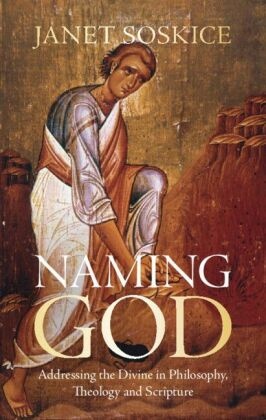
Naming God - Addressing the Divine in Philosophy, Theology and Scripture
| Verlag | Cambridge University Press |
| Auflage | 2023 |
| Seiten | 256 |
| Format | 14,7 x 1,9 x 22,2 cm |
| Gewicht | 460 g |
| Artikeltyp | Englisches Buch |
| EAN | 9781108834469 |
| Bestell-Nr | 10883446UA |
A powerful and ground-breaking contribution to religious philosophy that argues for a return to the venerable tradition of naming God.
Generations of Christians, Janet Soskice demonstrates, once knew God and Christ by hundreds of remarkable names. These included the appellations 'Messiah', 'Emmanuel', 'Alpha', 'Omega', 'Eternal', 'All-Powerful', 'Lamb', 'Lion', 'Goat', 'One', 'Word', 'Serpent' and 'Bridegroom'. In her much-anticipated new book, Soskice argues that contemporary understandings of divinity could be transformed by a return to a venerable analogical tradition of divine naming. These ancient titles - drawn from scripture - were chanted and sung, crafted and invoked (in polyphony and plainsong) as they were woven into the worship of the faithful. However, during the sixteenth century Descartes moved from 'naming' to 'defining' God via a series of metaphysical attributes. This made God a thing among things: a being amongst beings. For the author, reclaiming divine naming is not only overdue. It can also re-energize the relationship between philosophy and religious tradition. This path-breaking book shows just how rich and revolutionary such reclamation might be.
Inhaltsverzeichnis:
1. Introduction; 2. Naming God at Sinai. The gift of the name; 3. Philo on knowing and naming God; 4. Creation ex Nihilo as a revolution in Christian metaphysics... and in naming God; 5. Is 'God' the name of God?; 6. Gregory of Nyssa - naming and following God: from mystic vision to ethics; 7. Augustine, Moses and God as being itself; 8. Aquinas: philosophical theology as spiritual practice; 9. Conclusion: calling and being called.
Rezension:
'Skilfully and insightfully written, this book draws on the inheritance of the author's classic text Metaphor and Religious Language while developing that inheritance in a great many interesting and engaging new directions.' Oliver Davies, King's College London
